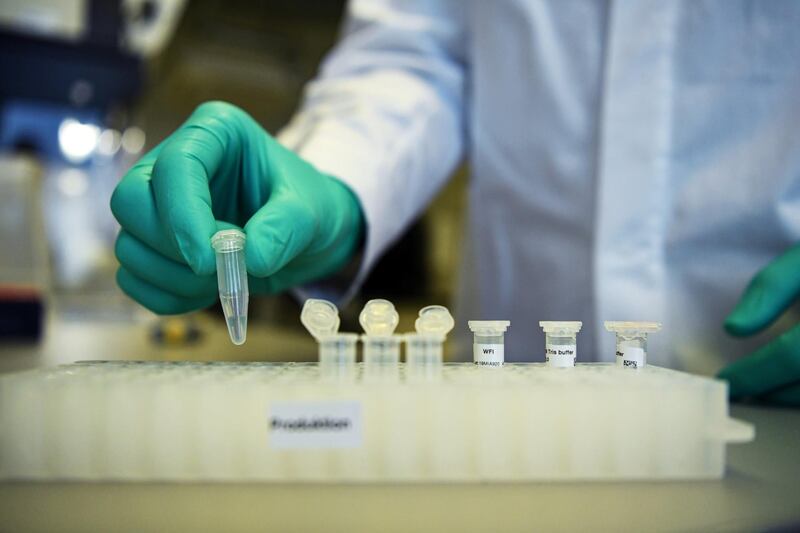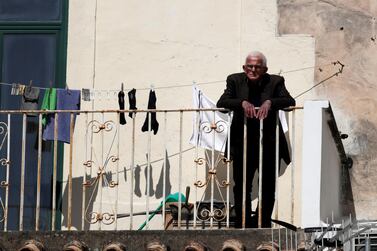Researchers in Britain are working on an accelerated testing programme to develop a vaccine for coronavirus and make it available before the end of the year.
Top health officials in the US and the UK have said a potential vaccine could take as long as 12 to 18 months to arrive.
But the Oxford team are aiming to develop a vaccine “much earlier,” said the director of the university's Jenner Institute, Adrian Hill.
The Oxford University-led research project plans to carry out a safety trial on humans as early as next month, with animal trials slated to begin at the UK’s Porton Down laboratory next week
The vaccine being developed in Oxford is one of five leading international efforts to develop a way to prevent the spread of the disease.
Public Health England (PHE) said Friday a team of its scientists at the specialist Porton Down facility were awarded $500,000 (Dh1.8 million) by the US Food and Drug Administration (FDA) to “bolster the international response to coronavirus vaccine and treatment development”.
Mr Hill said his team was “conscious that a vaccine is needed as soon as possible”.
Researchers at the institute expect a “big peak in mortality” by the early summer, Mr Hill said, adding that they hoped to have delivered the vaccine by June or July.
“The more vaccine we can provide sooner, the better,” he said.
The British government had already announced £20 million of funding for vaccine development at the defence laboratory.
Innovation minister Lord Bethell welcomed the US backing as “a powerful testimony to the expertise and commitment of the remarkable PHE team at this historic site”.
Porton Down researchers, working with scientists from Bristol and Liverpool universities, have already developed a so-called “synthetic virus,” which is an exact replica of the actual novel coronavirus for use in the laboratory, PHE said.
The laboratory, known in part for its secrecy, played a key role in developing the Ebola vaccine in 2019.
In the US, the biotech firm Moderna gave its first dose to a person in Seattle this week, with several other companies working to develop vaccines in the US, Germany and China.
The deputy director of the National Infection Service under PHE, Miles Carroll, said the body is “uniquely positioned to support and drive the country’s hunt for a coronavirus vaccine - using tried and tested methods for the rapid development of interventions for emerging diseases”.








